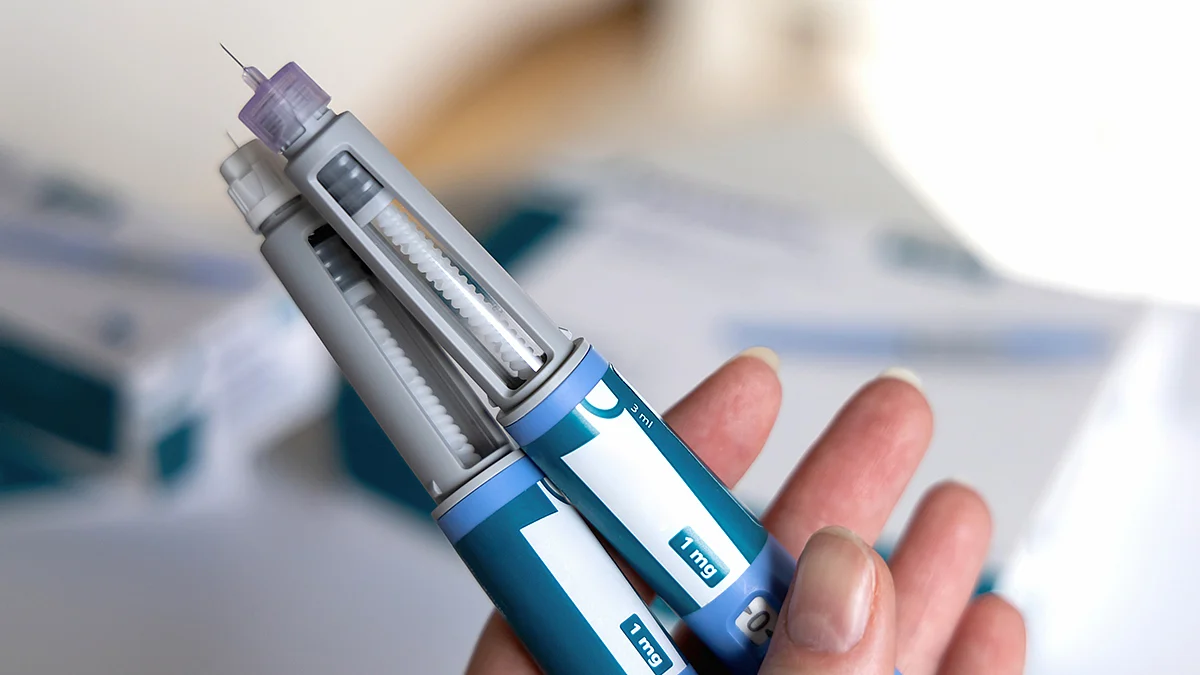Experts Recommend Healthy Lifestyle Changes Alongside GLP-1 Drug Use
By Dennis Thompson HealthDay Reporter
 via HealthDay
via HealthDayWEDNESDAY, July 16, 2025 — GLP-1 weight-loss drugs like Ozempic and Zepbound are so effective it might seem that a person can lose weight without doing anything at all.
But that’s a false notion, experts say. Losing weight properly and keeping it off will require lifestyle changes that extend beyond a weekly GLP-1 injection.
“Many patients lose muscle mass in addition to fat mass and have GI symptoms that lead to stopping medication,” senior researcher Dr. JoAnn Manson said in a news release. She’s chief of preventive medicine at Brigham and Women’s Hospital in Boston.
These potential problems prompted experts to craft a set of diet and exercise tips specifically for people on GLP-1 meds. The suggestions were published July 14 in JAMA Internal Medicine.
“We propose an approach to improving outcomes on GLP-1s by preserving lean body mass, ensuring good nutrition, and managing symptoms that can otherwise lead to stopping medications,” Manson said.
For example, lean muscle mass accounts for 25% to 40% of the weight a person loses when using GLP-1 drugs, experts noted.
“Begin each meal with 20 to 30 grams of protein from foods like fish, beans, chickpeas, or tofu,” the recommendations state. “Aim for 1.0 to 1.5 g of protein per kilogram of body weight daily, if moderately active. If your appetite is very low, use protein shakes with at least 20 g protein per serving.”
The recommendations also call for two to three half-hour sessions of strength training a week, to help preserve muscle mass.
GLP-1 drugs work in part by reducing a person’s appetite, which can interfere with a person properly fueling their bodies, researchers noted.
“Keep your energy by eating smaller meals plus snacks (fruit, handful of nuts, unsweetened yogurt),” the paper says. “Choose slowly digested carbohydrates like sweet potatoes or oatmeal instead of refined grains (white bread, pastries) or sugary drinks that can cause blood glucose swings. To feel full longer, add healthy fats like olive oil or avocado to meals.”
Overall, people should adopt a well-balanced, nutrient-dense diet to compliment their GLP-1 drug use, experts say. Avoid calorie-restricting diets, which can result in unhealthy weight loss and cause malnutrition by leaving out essential nutrients and vitamins.
When it comes to the potential gastrointestinal (GI) side effects of GLP-1 drugs, experts offer a raft of recommendations:
To ease nausea, avoid fried or processed fatty foods and eat tummy-soothing whole-grain toast or cereal, munch on some fruit, or sip a little ginger tea.
To counter heartburn caused by the drugs’ ability to slow stomach emptying, eat smaller portions and avoid lying down for two to three hours after meals. Choose baking over deep frying, and avoid irritating spices like black pepper, chili or garlic.
For constipation, increase your intake of fiber-rich foods like oats, apples, vegetables and nuts. Also drink plenty of water, and consider over-the-counter laxatives or stool softeners.
GLP-1 drugs can cause dehydration, so patients should drink 8 to 12 cups of water a day. Eating soups or water-rich fruits and vegetables like cucumbers and watermelon also helps, experts say.
Finally, to keep lost weight off, the experts recommend adopting a regular exercise program. On top of strength training, patients should build to 150 minutes of moderate-intensity exercise a week with activities like brisk walking, bicycling or light yard work.
“Although GLP-1 (drugs) represent a major breakthrough in obesity management, lasting treatment success requires integrating medication with individualized nutrition and physical activity interventions,” the authors write.
“This comprehensive approach optimizes sustained weight loss while mitigating side effects, preserving muscle mass, and limiting nutritional deficiencies,” they add.
Sources
Disclaimer: Statistical data in medical articles provide general trends and do not pertain to individuals. Individual factors can vary greatly. Always seek personalized medical advice for individual healthcare decisions.
Source: HealthDay
Posted : 2025-07-17 06:00
Read more

- Geographic Variation Seen in Declines in Cervical Cancer Incidence
- Recommendations Developed for Primary Care Asthma Management in Veterans, Military Members
- Dry Powder Inhalers: A Double Win for COPD and Environment
- 9 Best Foods to Try
- Could Drone-Delivered Defibrillators Save Lives?
- Inflammation Linked To Brain Damage, Memory Problems Among Football Players
Disclaimer
Every effort has been made to ensure that the information provided by Drugslib.com is accurate, up-to-date, and complete, but no guarantee is made to that effect. Drug information contained herein may be time sensitive. Drugslib.com information has been compiled for use by healthcare practitioners and consumers in the United States and therefore Drugslib.com does not warrant that uses outside of the United States are appropriate, unless specifically indicated otherwise. Drugslib.com's drug information does not endorse drugs, diagnose patients or recommend therapy. Drugslib.com's drug information is an informational resource designed to assist licensed healthcare practitioners in caring for their patients and/or to serve consumers viewing this service as a supplement to, and not a substitute for, the expertise, skill, knowledge and judgment of healthcare practitioners.
The absence of a warning for a given drug or drug combination in no way should be construed to indicate that the drug or drug combination is safe, effective or appropriate for any given patient. Drugslib.com does not assume any responsibility for any aspect of healthcare administered with the aid of information Drugslib.com provides. The information contained herein is not intended to cover all possible uses, directions, precautions, warnings, drug interactions, allergic reactions, or adverse effects. If you have questions about the drugs you are taking, check with your doctor, nurse or pharmacist.
Popular Keywords
- metformin obat apa
- alahan panjang
- glimepiride obat apa
- takikardia adalah
- erau ernie
- pradiabetes
- besar88
- atrofi adalah
- kutu anjing
- trakeostomi
- mayzent pi
- enbrel auto injector not working
- enbrel interactions
- lenvima life expectancy
- leqvio pi
- what is lenvima
- lenvima pi
- empagliflozin-linagliptin
- encourage foundation for enbrel
- qulipta drug interactions
